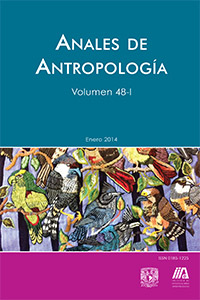Maize, a traveller without luggage
Main Article Content
Abstract
Maize is today used as food in many parts of the world, due to the plasticity of its biological nature, and the possibility of being eaten in many different forms. From its domestication area probably in the Balsas basin, it arrived to all of Mesoamerica and the rest of the continent. Once the links between the Old and New World were established, it arrived rapidly to Europe, Africa and Asia, where it became incorporated as human and animal food. Columbus took the first seeds to Spain, where it grew in abundance as early as 1498. Probably the Portuguese carried it to Africa and Asia, where it became known by 1505, at least in a realistic Chinese drawing. It is regrettable that the technique known as nixtamalization, and in a different level, the combination of maize and beans or other leguminous seeds and the agricultural techniques known as milpa and chinampas were not adopted elsewhere, since they have been the basis of subsistence in Mexico up to recent years.
Downloads
Article Details
Esta revista usa una licencia CC del tipo CC BY-NC-ND 3.0. Se maneja bajo el esquema de acceso abierto, con una licencia Creative Commons Attribution-NonCommercial-NoDerivs 3.0 Unported.
